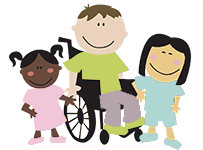How is your Child Developing
[vc_row][vc_column][vc_column_text]Development is amazing, whether we are watching eggs in a nest, seeing little hatchlings that move through stages of development to become fledglings, ready to leave the nest or whether we are watching a newborn move through early stages of development, leading forward into more independent stages of life. Normal development is predictable, and moves through different stages, with each new phase building on the learning and strengths that develop from the previous stage.
 Miraculous as normal development may be, sometimes things don’t always follow the expected (or neurologically-wired) path we anticipate. In these cases, we need to be ready to intervene, to help our very young child develop the necessary underpinnings he or she may need to move to the next stage of development. Sometimes, the neurological differences are too significant, and a child will have life-long challenges. These challenges can be physical, cognitive, sensory, or with language development. For instance, a child who is born with a hearing impairment will not process auditory information like someone with normal hearing. These challenges impact further development in many ways. Knowledge and intervention can make a huge positive difference for this child, but they will still have the hearing impairment. The same holds true if a child has autism or Down syndrome. They may still have the neurological or physical differences associated with their diagnosis, but by intervening at an early age, we can help them move to higher levels of developmental success.
Miraculous as normal development may be, sometimes things don’t always follow the expected (or neurologically-wired) path we anticipate. In these cases, we need to be ready to intervene, to help our very young child develop the necessary underpinnings he or she may need to move to the next stage of development. Sometimes, the neurological differences are too significant, and a child will have life-long challenges. These challenges can be physical, cognitive, sensory, or with language development. For instance, a child who is born with a hearing impairment will not process auditory information like someone with normal hearing. These challenges impact further development in many ways. Knowledge and intervention can make a huge positive difference for this child, but they will still have the hearing impairment. The same holds true if a child has autism or Down syndrome. They may still have the neurological or physical differences associated with their diagnosis, but by intervening at an early age, we can help them move to higher levels of developmental success.
How can we know if our infant or child is developing normally? If your child is born with a congenital disorder such as Down syndrome, you know that there will be a developmental difference. This holds true for hearing impairment, as well, if identified at birth. Thankfully in these situations, your pediatrician can guide you immediately into programs and resources that will help your infant. Infants with Down syndrome or other congenital disorders, as well as infants with hearing loss will need speech and language and sensory intervention from an early age.
Sometimes, we will not know a child has a hearing impairment because it may be caused by a severe ear infection, or chronic otitis media or some other illness after leaving the hospital. Often we can sense something is a little different, or perhaps a grandparent or friend mentions a concern. Always listen to your gut and the caring input of others. A visit to the pediatrician can help address any concerns. You could ask your physician if a speech or occupational evaluation would be appropriate for your child. This comprehensive assessment looks at standardized measures, which compare a child’s development to that of a normative sample of the same age. The assessment also includes non-standardized information, such as parent questionnaires, developmental scales, and observational data. Licensed pediatric speech pathologists and occupational therapists have extensive training and experience working with young children and know how to look for red flags.
Speech & Occupational Therapy of North Texas works specifically with pediatrics, from infants through junior high age. Our therapists know how to determine if a child has a speech or language disorder as well as whether he or she may have a fine motor, motor planning, or sensory disorder. Our testing, when a disorder is found, yields an individual treatment plan, since each child is unique. We know how important early intervention and family training is for the best developmental outcomes. Our model is based on family participation because we want to equip families to help their child meet their greatest potential and to generalize new skills in their natural environments.
We are happy to answer any questions you might have concerning child development within our scope of practice. Please call our office at 972-424-0148 to talk with a speech pathologist or occupational therapist. We are network providers with many major insurance plans and can help you determine your coverage for pediatric therapy. Speech & Occupational Therapy of North Texas has clinics providing occupational therapy and speech therapy in Frisco, McKinney, and Plano. We have relationships with many pediatric practices throughout Collin County. Please let us know if we can help!
Visit the Center for Disease Control and Prevention to find out how your young child is progressing with development.
https://www.cdc.gov/ncbddd/actearly/milestones/index.html[/vc_column_text][/vc_column][/vc_row]
